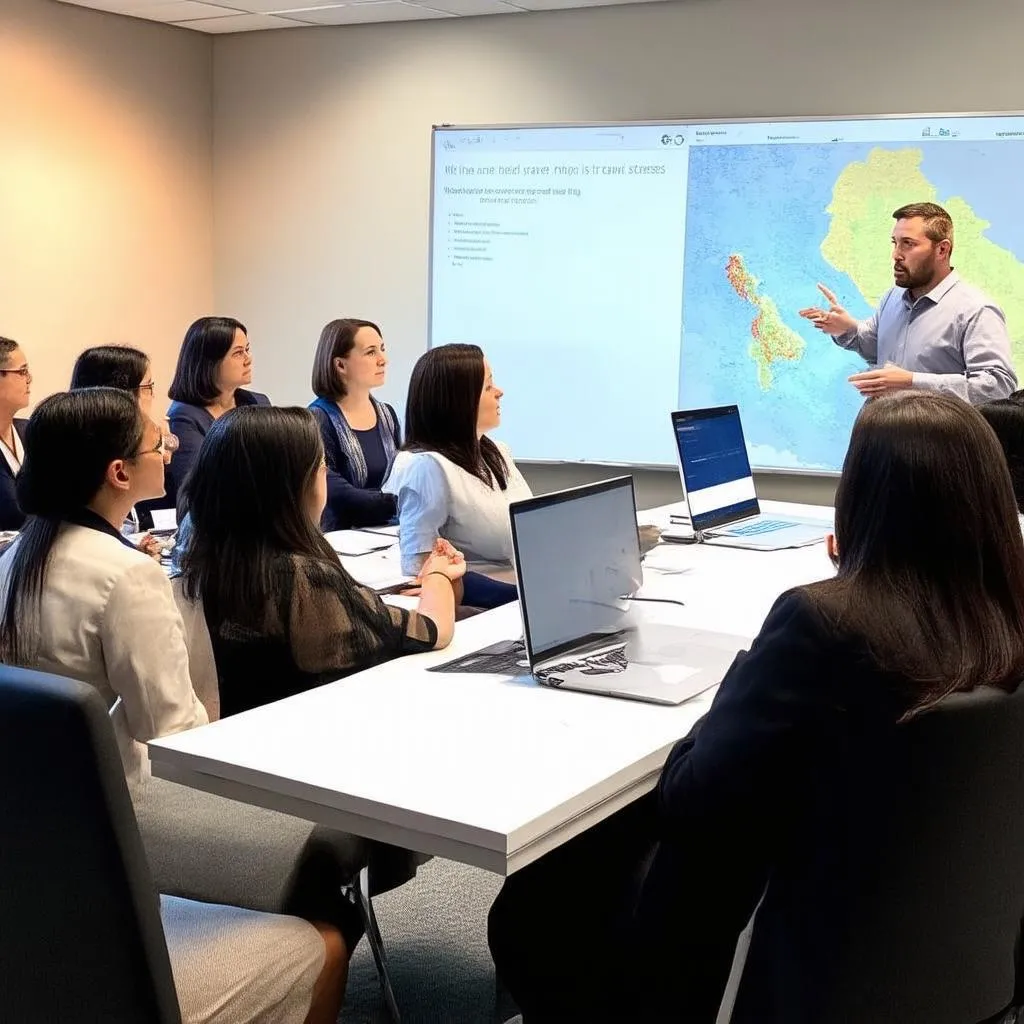Imagine this: you’re passionate about travel, you love crafting incredible itineraries, and you dream of turning your wanderlust into a career. Becoming a travel agent sounds like the perfect plan, right? But then you stumble upon terms like “host agency” and suddenly, the travel industry feels a little less like paradise and a little more like uncharted territory.
Fear not, intrepid explorer! This article is your compass, guiding you through the world of host agencies and how they can empower you to become a travel professional.
Understanding the Role of a Host Agency
In essence, a host agency is like a supportive travel agency big sibling. They provide independent travel agents with the infrastructure, resources, and support they need to thrive without the hassle of setting up their own full-fledged agency.
Think of it like setting up shop on a bustling street corner (the travel industry) – you could rent a whole storefront, deal with permits, and figure out utilities on your own. Or, you could join a supportive marketplace with existing infrastructure, benefitting from their reputation and shared resources. That’s what a host agency offers.
What does a host agency do for travel agents?
Host agencies offer a range of services, but some common offerings include:
- Booking platforms and technology: Access to Global Distribution Systems (GDS) for booking flights, hotels, car rentals, and more.
- Marketing and branding support: Leverage existing marketing materials, website templates, and even benefit from their brand recognition.
- Training and professional development: Stay updated on industry trends, access educational resources, and refine your skills.
- Commissions and back-office support: Receive competitive commission rates and assistance with administrative tasks, accounting, and customer service.
Is a Host Agency Right for You?
Choosing to partner with a host agency is a significant decision. Consider these points:
Pros:
- Lower startup costs: No need for hefty initial investments in technology, office space, or staff.
- Established infrastructure and support: Focus on selling travel, not managing logistics.
- Networking and mentorship opportunities: Connect with fellow travel professionals and learn from experienced mentors.
Cons:
- Commission splits: You’ll share a portion of your commission with the host agency.
- Less control over branding: You’ll operate under the host agency’s umbrella brand.
- Limited specialization: Some host agencies may have a particular travel niche, which might not align with your expertise.
Choosing the Right Host Agency: Key Factors to Consider
Just like choosing the perfect destination, selecting the right host agency requires careful research. Here are some factors to consider:
- Commission structure and fees: Understand their commission split, any monthly fees, and what services those fees cover.
- Reputation and credibility: Research their industry standing, client reviews, and years of experience.
- Technology and training resources: Evaluate the quality of their booking platforms, marketing tools, and educational opportunities.
- Support and communication: Assess their responsiveness, accessibility, and willingness to assist with your needs.
Launching Your Travel Business with a Host Agency
Once you’ve found a host agency that aligns with your goals, it’s time to take the plunge!
Just like planning a trip to a new city – say, a historical adventure through Rome – you’ll need to prepare. Research the host agency’s onboarding process, understand their requirements, and familiarize yourself with their systems.
 Travel Agent Working with Clients
Travel Agent Working with Clients
FAQs about Host Agencies
Q: How much does it cost to join a host agency?
A: Costs vary, but expect to pay start-up fees and/or monthly fees. Some host agencies offer tiered pricing based on your sales volume or experience level.
Q: Can I specialize in a particular type of travel with a host agency?
A: Many host agencies specialize in specific travel niches, such as luxury travel, adventure travel, or destination weddings. It’s crucial to choose an agency that aligns with your area of expertise.
Q: Do I need to be certified or licensed to join a host agency?
A: While not always mandatory, obtaining certifications like the Certified Travel Associate (CTA) can boost your credibility and demonstrate your commitment to professionalism.
 Travel Agent Training Session
Travel Agent Training Session
Conclusion: Embark on Your Travel Career Journey
Choosing the right host agency can be a game-changer for aspiring travel agents. By providing you with the tools, support, and network you need, a host agency empowers you to turn your passion for travel into a fulfilling career.
Do you have more questions about the exciting world of travel agencies? Explore our other informative articles on How to Become a Travel Agent and What is an OTA in Travel to deepen your understanding. Safe travels on your path to becoming a travel professional!

